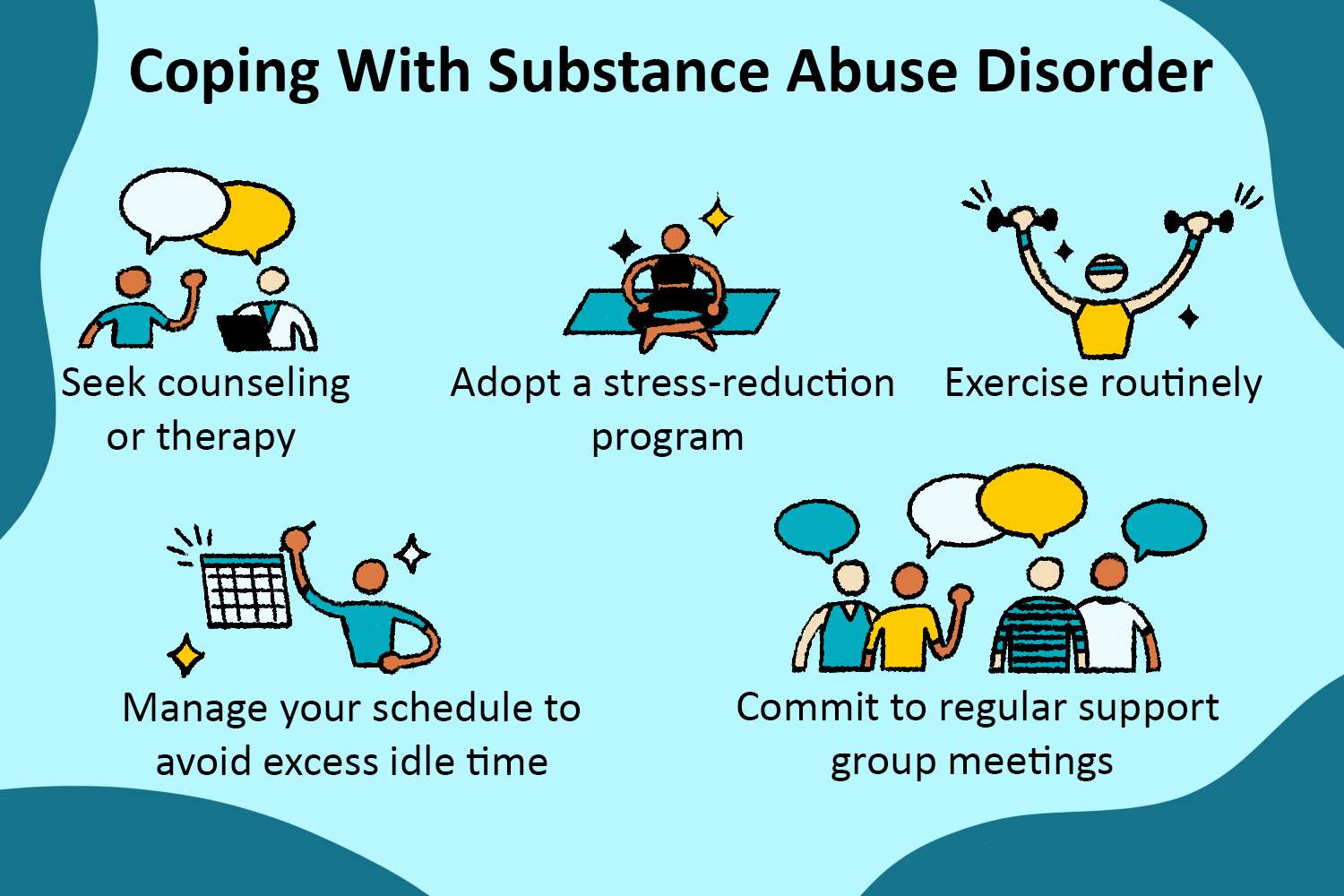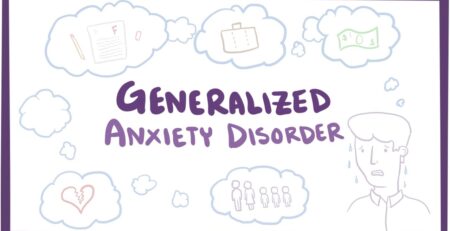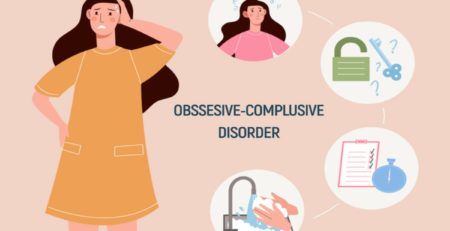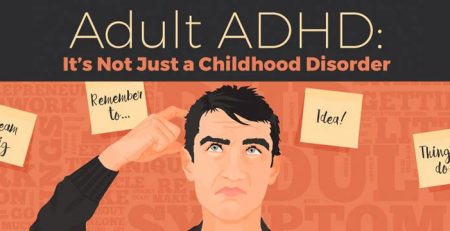What to Expect from an Addiction Psychiatrist
Substance abuse can be challenging to overcome, and navigating the world of addiction treatment can be overwhelming. Suppose you are considering getting help for your substance use disorder. In that case, one of the most influential professionals you may seek out is an addiction psychiatrist—a medical doctor who specializes in diagnosing and treating mental health disorders related to substance abuse.
What Does an Addiction Psychiatrist Do?
An addiction psychiatrist focuses on evaluating and treating mental health disorders associated with substance abuse. This includes providing comprehensive diagnostic assessments, developing treatment plans, prescribing medications to treat mental health issues, and providing psychotherapy. Additionally, they may collaborate with other healthcare providers, such as social workers or therapists, to provide a more holistic approach to treatment.
How Can an Addiction Psychiatrist Help Treat Substance Abuse?
Addiction psychiatrists are highly trained in understanding the link between mental health issues and substance abuse. They are also experienced in helping people better understand how their mental health can influence their substance use. For example, if someone is struggling with depression or anxiety, they may turn to drugs or alcohol to self-medicate their symptoms. An addiction psychiatrist can help them identify these correlations and develop strategies for managing their mental health that does not involve substance use.
Additionally, an addiction psychiatrist may prescribe medications as part of treatment for both mental health disorders and substance use disorders. For example, certain types of antidepressants have been found effective in treating depression and cravings for alcohol or drugs. In addition to medication management, they may offer counseling services for individuals dealing with substance abuse issues.
An addiction psychiatrist typically:
1. An addiction psychiatrist is a medical doctor who specializes in diagnosing and treating mental health disorders that are caused by or related to substance abuse.
2. Addiction psychiatrists often work with other healthcare professionals, such as addiction counselors and therapists, to provide comprehensive patient care.
3. Addiction psychiatrists typically complete four years of medical school, followed by a four-year residency in psychiatry.
4. After their residency, addiction psychiatrists may complete a fellowship in addiction psychiatry, an additional two to three years of training.
5. Addiction psychiatrists are board-certified by the American Board of Psychiatry and Neurology.
6. Addiction psychiatrists typically work in outpatient or inpatient settings.
7. Outpatient settings may include private practices, community mental health centers, or hospitals.
8. Inpatient settings may include residential treatment facilities, psychiatric hospitals, or detoxification centers.
9. Addiction psychiatrists may also work in research settings like universities or pharmaceutical companies.
10. Addiction psychiatrists typically work full-time hours; however, they may also work on-call hours or evenings and weekends if they work in an outpatient setting
An addiction psychiatrist should be consulted if you or someone you know is struggling with an addiction disorder. Addiction psychiatrists specialize in diagnosing, treating, and managing substance use disorders by providing a combination of treatments such as psychotherapy, medication, or other evidence-based techniques. It is essential to seek help from an addiction psychiatrist if one has previously struggled with substance abuse or mental health problems such as depression, schizophrenia, or bipolar disorder. Prompt recognition and treatment can help ensure a person’s physical and emotional health while drastically improving their quality of life.

Addiction psychiatrists are an invaluable resource in successfully treating substance use disorders. While they may not be the first line of defense against addiction, many individuals seeking help with an addiction will consult a psychiatrist specialized in this field. In most instances, referrals to addiction psychiatrists come from healthcare providers such as primary care doctors, therapists, and psychologists who realize that psychiatric intervention is required for successful treatment. Those admitted to inpatient residential or outpatient treatment centers will typically receive psychiatric care from professionals who are seasoned in addressing addiction issues. Given its complexity and prevalence, a highly trained professional specializing in addictions is often the best option for finding lasting recovery from substance use disorders.
Substance abuse is a deadly problem with severe consequences. While it may seem like an easy lifestyle to succumb to, the outcomes of drug abuse and addiction can be devastating – not only for the abuser but also for their loved ones. Particularly concerning is how substance abuse can undo years of mental and physical health building, threatening irreparable damage. However, seeking help from an addiction psychiatrist as soon as possible is a step towards addressing this issue to prevent severe and permanent mental and physical diseases, disorders, or conditions from occurring due to excessive, long-term drug exposure. Not taking action now might cost you or someone else much more.
When should you see an addiction psychiatrist?
When you or a loved one are faced with an addiction, the help of an addiction psychiatrist can be highly beneficial. Addiction psychiatrists specialize in understanding and treating compulsive behaviors related to substance abuse. Most importantly, they can work with you to create a recovery plan from drug or alcohol abuse. In addition to relieving the sometimes overwhelming feelings associated with addiction, they can also examine any other emotional issues that may have contributed to your current situation. Whether it’s depression, insecurity, or difficulty managing stress, an addiction psychiatrist can help you identify potential triggers of unhealthy behavior and guide you toward healthier habits. If you’re struggling with prescription medications, alcohol, or illegal drugs, consider scheduling a consultation with an addiction psychiatrist to get on the path to recovery.
1. If you are struggling with addiction, it is essential to seek professional help. Addiction is a severe disease that can have devastating consequences if left untreated. While many different types of treatment are available, an addiction psychiatrist can provide you with the specialized care you need to overcome your addiction.
2. An addiction psychiatrist is a medical doctor who specializes in treating addiction. Addiction psychiatrists complete four years of medical school and then complete an additional two years of training in psychiatry. This training gives them the skills and knowledge necessary to treat patients with addiction effectively.
3. An addiction psychiatrist can provide a comprehensive treatment plan that includes medication, therapy, and other support services. Medication can help you manage your withdrawal symptoms and cravings, while treatment can help you address the underlying causes of your addiction.
4. If you are struggling with addiction, it is essential to seek professional help as soon as possible. Addiction is a progressive disease that worsens over time if left untreated. The sooner you seek treatment, the better your chances of recovery.
5. An addiction psychiatrist can provide specialized care to overcome your addiction. If you or someone you know is struggling with addiction, please seek professional help today.
What does an addiction psychiatrist treat?
An addiction psychiatrist treats the following diseases, disorders, and conditions:
Addiction
Addiction can be an all-encompassing trap, consuming individuals and preventing them from breaking free from its powerful grip. It is a complex condition that affects physical and mental health, disrupting lives in far-reaching ways.
Anxiety disorders
Anxiety disorders are psychological illnesses that can cause worry and fear in a person, often overwhelmingly. These conditions can have significant physical effects and interfere with daily life, impacting how someone perceives situations or interacts with others.
Bipolar Disorder
Bipolar Disorder is a mood disorder that often causes dramatic fluctuations in one’s energy, activity level, and emotional state. It can be an unpredictable roller coaster ride of powerful highs and lows – from feeling elated to spiraling into a deep depression – leaving those affected struggling to find balance.
Borderline personality disorder
Borderline Personality Disorder is a severe mental health condition that can cause sufferers to experience intense emotions, bouts of stress, impulsive behavior, and difficulty maintaining healthy relationships. Those affected may struggle with self-destructive thoughts or behaviors as they attempt to navigate the challenges of daily life. Fortunately, treatments available have proven highly successful in managing this Disorder.
Depression
Depression is a state of prolonged sadness and hopelessness that can overwhelm the individual, coloring their outlook on life. It affects how we think and feel about ourselves, those around us, and our daily activities – making it difficult to experience joy or fulfillment in anything one does.
Eating disorders
Eating disorders are serious mental health issues affecting people of all ages and walks of life. These potentially-devastating illnesses can disrupt the lives of those involved, leading to unpredictable physical, emotional, and social consequences for individuals in their communities. Overcoming eating disorder cycles requires dedicated commitment, professional help, and support from family members or friends who understand how devastating these issues can be on an individual’s life.
Obsessive-compulsive Disorder
Obsessive-Compulsive Disorder is a mental health condition that causes individuals to experience intrusive, repetitive thoughts and actions. It can be incredibly disruptive to everyday life — but with treatment, those affected by it have hope for living more manageable lives.
Post-traumatic stress disorder
Post-traumatic stress disorder is an anxiety disorder caused by a traumatic event that can have long-lasting, intense psychological and physical effects on someone. It’s often called the invisible wound of war, but it doesn’t just affect veterans; anybody who has experienced or witnessed something overwhelming or frightening may have PTSD.
Schizophrenia
Schizophrenia is an often misunderstood mental health disorder that can profoundly affect one’s life. It causes individuals to experience altered states of reality, such as hearing voices or having delusional beliefs about themselves and the world around them. This condition affects people mentally and physically by causing difficulty functioning from day-to-day activities both socially and at work/school. Schizophrenia should be taken seriously; with proper treatment, those affected may live meaningful lives despite its challenges.
Substance abuse
Substance abuse is an alarming and widespread issue plaguing society. It involves substance misuse, ranging from alcohol to opioids to illegal drugs, with potentially devastating consequences for individuals’ health and well-being.

Risk factors of Substance Abuse
Drug addiction is a complex issue with serious consequences and requires professional help. While anyone has the potential to become addicted, certain risk factors can make people more likely or faster to develop a dependency on drugs. These factors vary but could include easy access to medicines, genetic predisposition, underlying mental health issues, social and environmental triggers, emotional trauma or physical pain, and how a person’s brain reacts to the substance. Knowing these risk factors can arm you with essential knowledge that may help you manage any experiences of drug use in yourself or someone else.
Family history of addiction: Drug addiction can be complicated, often involving environmental and genetic components. Experts believe that some families are more likely to struggle with drug addiction due to shared genes across family members, suggesting that what is inherited biologically can have profound implications regarding life choices. Suppose you have a blood relative like a parent or sibling with an alcohol or drug addiction. In that case, you are statistically at greater risk for developing an addiction than the general population. While the genetic potential does not guarantee an individual will become addicted, it is essential to be aware of any potential risks and do your best to prevent them from holding sway.
Mental health disorder: A mental health disorder can make it more likely for an individual to develop an addiction to drugs or other substances. This can become a form of self-medication, as the user seeks to find relief from the symptom of the disorder, such as depression, anxiety, and loneliness. While using drugs may seem like the only way to escape these feelings, it could worsen their mental health in the long term. Understanding one’s vulnerable state and seeking proper treatment is essential in tackling a mental health issue and drug addiction. With appropriate help and support, individuals can overcome these issues and lead fulfilling lives.
Peer pressure: Peer pressure is an influential force in young people’s decisions, especially regarding drug use. For adolescents and teens, the need to fit in often leads them to experiment with drugs and even substance misuse. This is why it’s so crucial for parents and peers alike to speak openly about the dangers of drug use so that young people understand its risks. Parents should serve as role models by setting strict guidelines regarding drug use and opening up a dialogue surrounding the topic to better equip their children with the tools they need to make well-informed decisions about drugs.
Lack of family involvement: The close bond between family members is essential to a person’s well-being and can significantly influence a young person’s life. There are, however, some environments where family involvement isn’t present or has deteriorated due to difficult circumstances. This can put the individual at greater risk of developing addictive behaviors since no stable support system can help promote healthy choices or provide stability during tumultuous times. In addition, when parental supervision is lacking, youth may struggle with making responsible decisions regarding their well-being. For these individuals, it may be beneficial to seek external support systems and guidance from mentors with similar backgrounds and experiences.
An early use: With the rise of drug use in adolescents and young adults, we see devastating effects that can last a lifetime. Early exposure to drugs – even occasional recreational use — has been proven to alter a developing brain’s chemistry, potentially setting individuals up for future addiction or other psychological issues. Developmentally speaking, our teenage years are perhaps the most vulnerable times regarding potential drug damage. It is essential to be aware of these risks to make sound decisions regarding substance use. Though not all early drug experiences will lead to addiction, the effects that can come with this type of behavior should be taken very seriously to minimize any potential long-term damage.
Taking a highly addictive drug: Taking drugs, even those that are not inherently as addictive as others, is still dangerous and can have long-term consequences. Many people become addicted to drugs after taking them recreationally or even believing they are “light drugs” such as marijuana. Though certain medications like stimulants or opioid painkillers may result in addiction more quickly than others, all of them are capable of causing addiction. In addition, smoking or injecting a drug dramatically increases the potential for addiction due to its ability to deliver a large amount of the substance directly into the bloodstream. Taking any medication is a risk, regardless of classification, and should be taken seriously.











